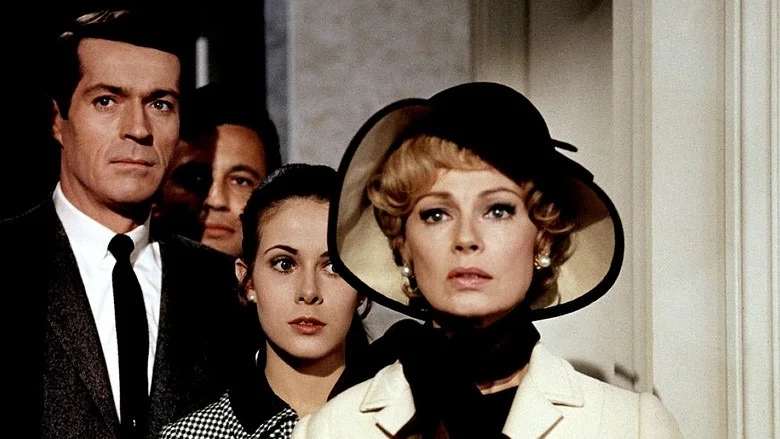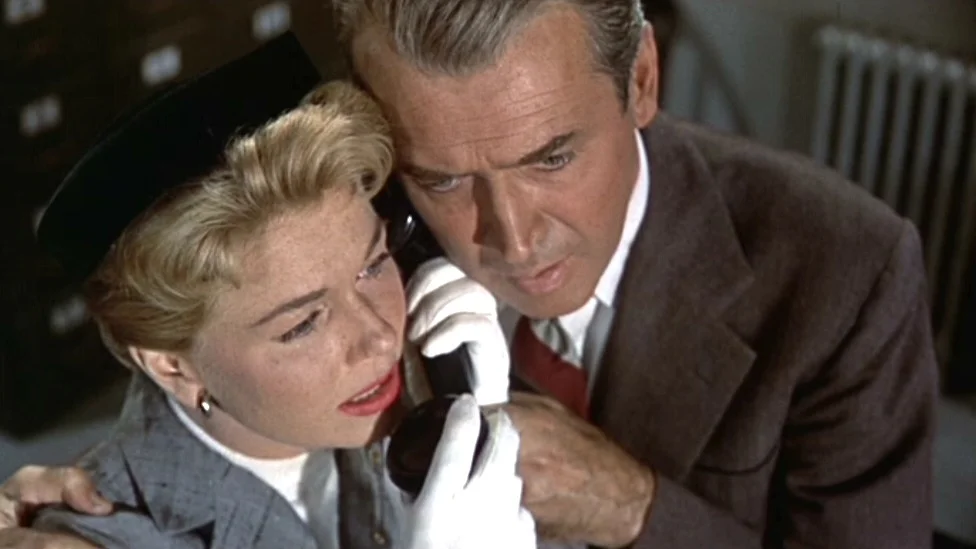Beginner’s Guide to Alfred Hitchcock: The Skin Game (1931)
It’s hard for me to review these early Hitchcock films. There are only a few that Hitchcock seemed interested in. For the most part, Hitchcock claims he was obligated to do these early films by his studios. The director hardly talks about any of these movies with much affection. It’s hard for his lack of enthusiasm not to color my own opinion while watching The Skin Game (1931) on FilmStruck, I kept thinking how Hitchcock was bored of this movie, as he mentions in his interviews with Francois Truffaut. That’s been the recurring theme during this period between The Lodger: A Story of the London Fog in 1927 and The Man Who Knew Too Much in 1934. There have been some exceptions, but The Skin Game falls into that category of films forced upon the young director.
The Skin Game was first a play written by John Galsworthy. It premiered in London, then went onto a production in New York. Hitchcock’s film version is actually a remake of a silent version in 1921. That version was a Dutch-British film, directed by B.E. Doxar-Pratt, starring Edmund Gwenn and Helen Haye, both of which would reprise their roles for Alfred Hitchcock’s film, ten years later. Hitchcock and his future wife Alma Reville collaborated on the screenplay. Hitchcock’s frequent cinematographer at the time, Jack E. Cox. shot the film (they also worked together on The Lady Vanishes, The Manxman, and Blackmail among others).
The Skin Game focuses on two rival families: the old money Hillcrists, led by C.V. France, Helen Haye, and Jill Esmond, and the new money Hornblowers, with Edmund Gwenn, John Longden, and Frank Lawton. The Hornblowers have been buying land and building factories, which are displacing farmers in the area. The Hillcrists are hellbent on keeping the last piece of land, which adjoins their estate. During a tough auction, Mr. Hornblower tricks Mr. Hillcrist out of buying the land. To get his revenge, Mr. Hillcrist threatens to reveal a secret about Hornblower’s daughter-in-law.
Running only 82 minutes, the film is engaging enough. The rivalry between the two families is compelling because the stakes are escalating. Hitchcock does not do anything new with his filmmaking, at least nothing that he hadn’t already done in previous stage adaptations. He brings the camera onto the set instead of staging his blocking like a play. There are some cool shots here and there, but overall the film is kind of nothing. I kept asking why Hitchcock would make the film, what interested him in the story? Of course, I knew the answer. This film was an assignment, a stepping-stone to a later career.
What saves the movie are the performances, particularly Helen Haye and Edmund Gwenn. They play their characters effortlessly (no surprise, since they had played the roles before). Haye had a long career, including films like Anna Karenina, The Frightened Lady, and Hitchcock’s The 39 Steps. Gwenn himself worked with Hitchcock three more times, especially in the more memorable The Trouble with Harry and Foreign Correspondent. These two are really strong performers in the film and give the film some depth.
I have to admit, with a title like The Skin Game I was expecting a…sexier movie. At least, I thought I’d be seeing a more thrilling one. It’s a good, but confounding, title. The playwright meant “skin game” in its colloquial definition, like a con or a gamble. It was my own ignorance that I didn’t know that meaning. After I looked up what ‘skin game’ meant, I pictured Hitchcock making a movie about a sly con man. I definitely was not expecting a movie about two old men fighting over land. The Skin Game is interesting, but not even Hitchcock considered it worth discussing further.
The final installment of our long running column aptly finds Manish exploring Hitch’s final film, this black comedy starring Bruce Dern and Karen Black.
Hitchcock’s dabbling in the screwball comedy arena is more interesting than entertaining but has a terrific lead performance from Carole Lombard.
Even with an ambitious opening and a phenomenal performance from Marlene Dietrich, this mystery is ultimately middle-of-the-road Hitchcock.
A look at the charming and visually inventive romantic comedy from Hitchcock’s silent era.
While this early film from Hitchcock has hints of where his career was headed, it’s one of his least compelling efforts.
One of Hitchcock’s last films, Topaz is an overlong but often exciting spy thriller.
In our Beginner’s Guide to Hitchcock, we take a look at a little known musical (!) called Waltzes From Vienna.
This lackluster romantic drama from Hitchcock’s silent era would have benefitted greatly from being made later in his career.
A dry and predictable mystery thriller that, despite a stellar cast, is rightfully considered lesser Hitchcock.
Hitchcock ends one phase of his career with this, unfortunately unmemorable, film.
The movie involves a chorus girl, but the story behind the scenes is much more interesting.
This WWI-set espionage thriller has some similarities to a superhero blockbuster.
Murder and theatrics are on deck with a truly interesting early Hitchcock film.
Don’t let the title confuse you, this is Hitchcock film that’s very much an “assignment film”.
Hitchcock’s early screwball comedy shows signs of his knack for visual humor.
This Oscar-nominated Hitch thriller set its psychological game in the battlefield of a marriage.
This forgotten attempt at parody from Hitch should probably stay that way.
Hitchcock wasn’t too fond of this, his final silent film, but it still holds some of his trademark flourishes.
This Henry Fonda starrer is one of Hitch’s least stylish and most grounded works.
Manish takes a look at his favorite film and its meaning in the #MeToo era.
Despite gorgeous cinematography and a strong performance from Ingrid Bergman, this is still lesser Hitch.
This film from Hitchcock's silent era is one of the very first boxing pictures.
Hitchcock's thrills lift up the nothing-special plot in this pre-war thriller.
An early Hitchcock film from the silent era that is for completists only.
Jimmy Stewart stars in Hitchcock's remake of his 1934 film The Man Who Knew Too Much.
Peter Lorre stars in this iconic thriller/comedy.
Manish explores this "lesser" Hitchcock which is the most patriotic film he ever made.
Sylvia Sidney's commanding lead performance is just one of the pleasures of this 'lesser' Hitch thriller.
While there are interesting elements, this silent era Hitchcock is not an essential work in his career.
Hitchcock brings the laughs in this worthwhile outing.































